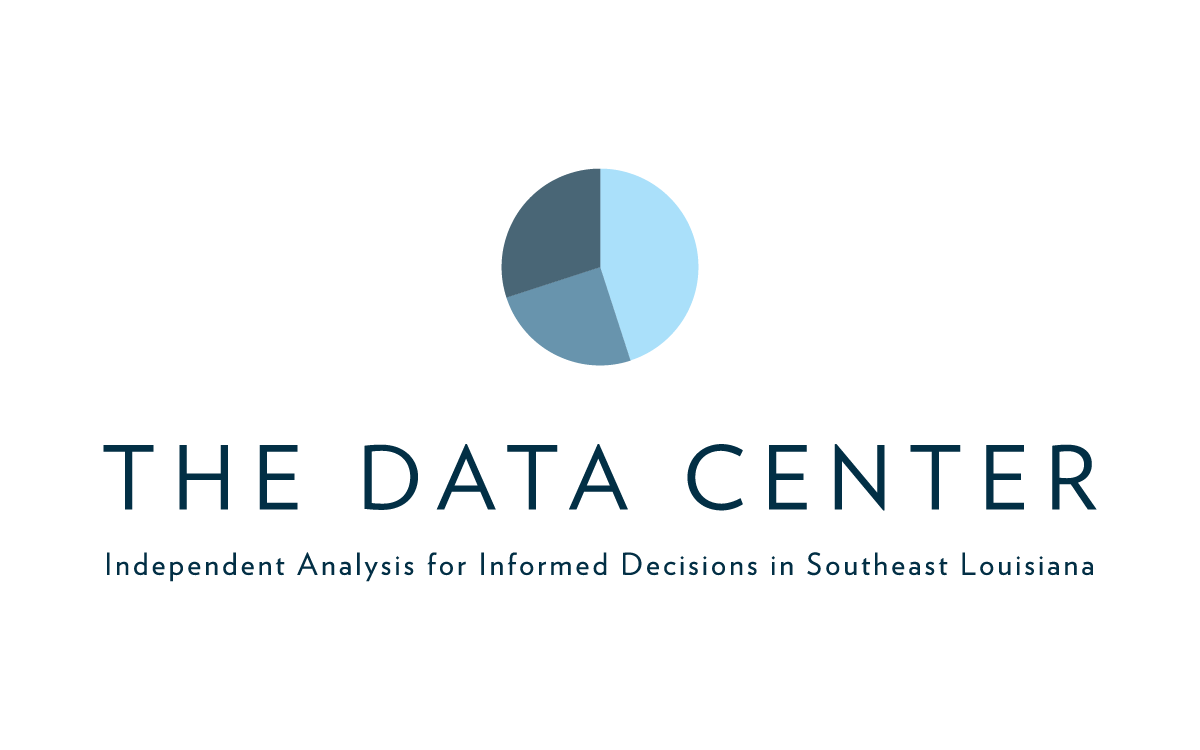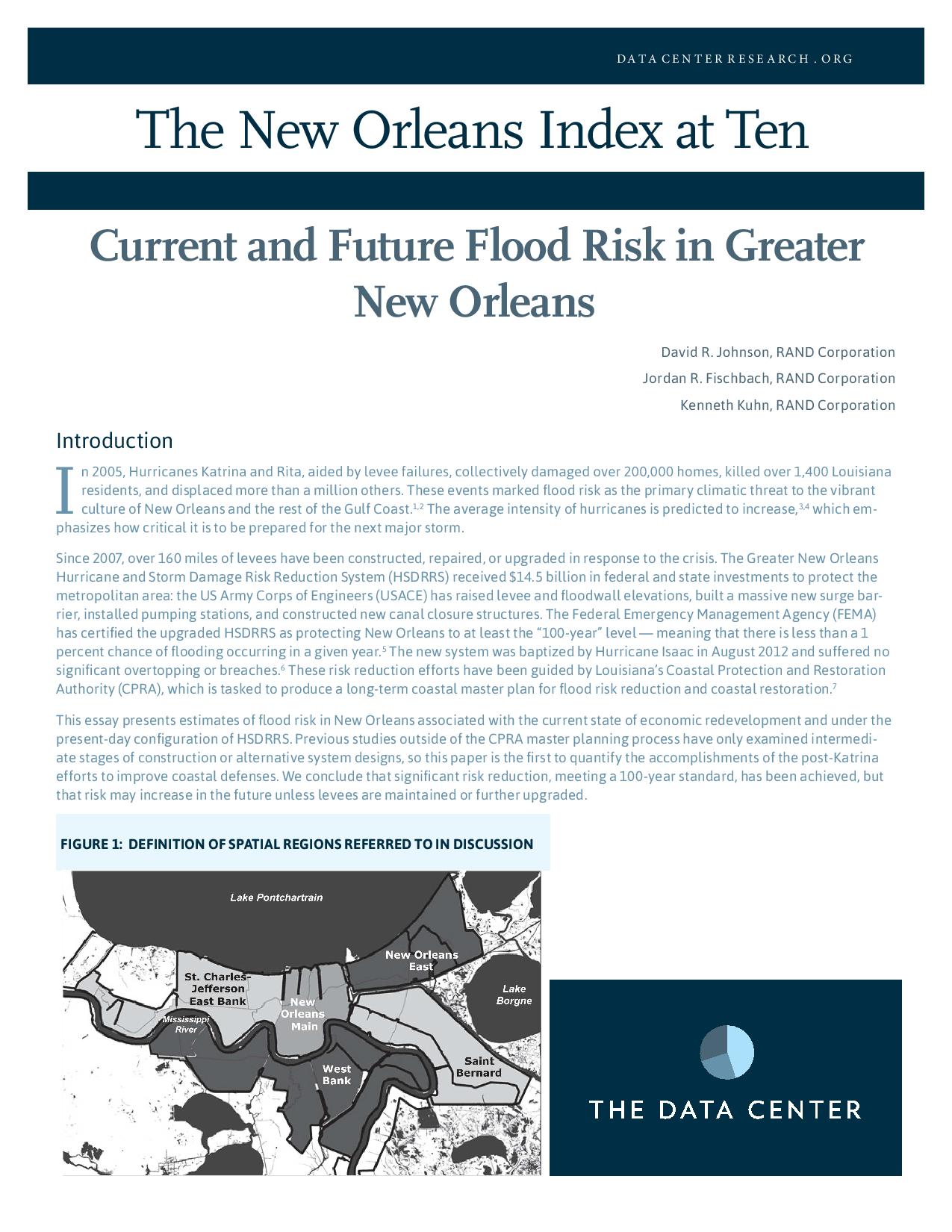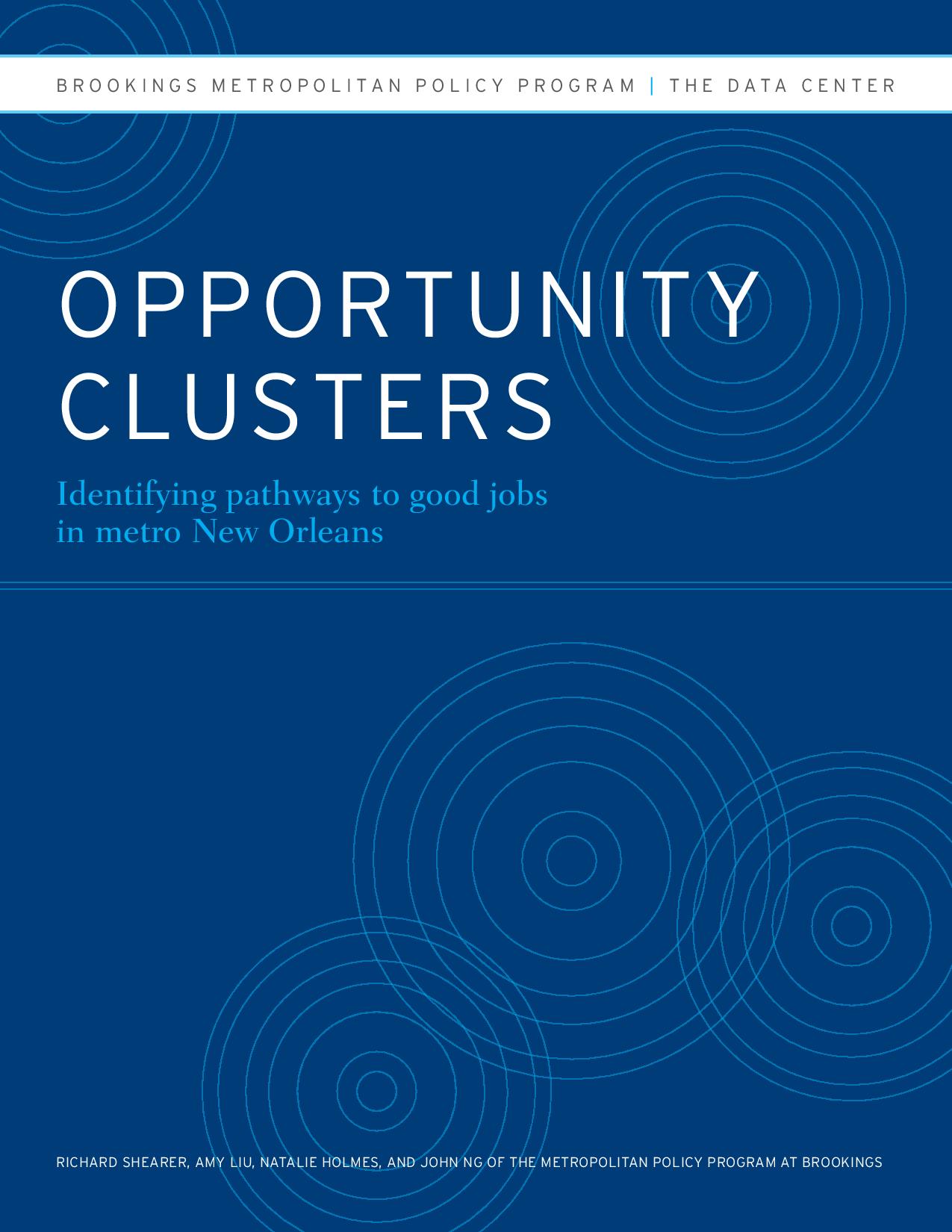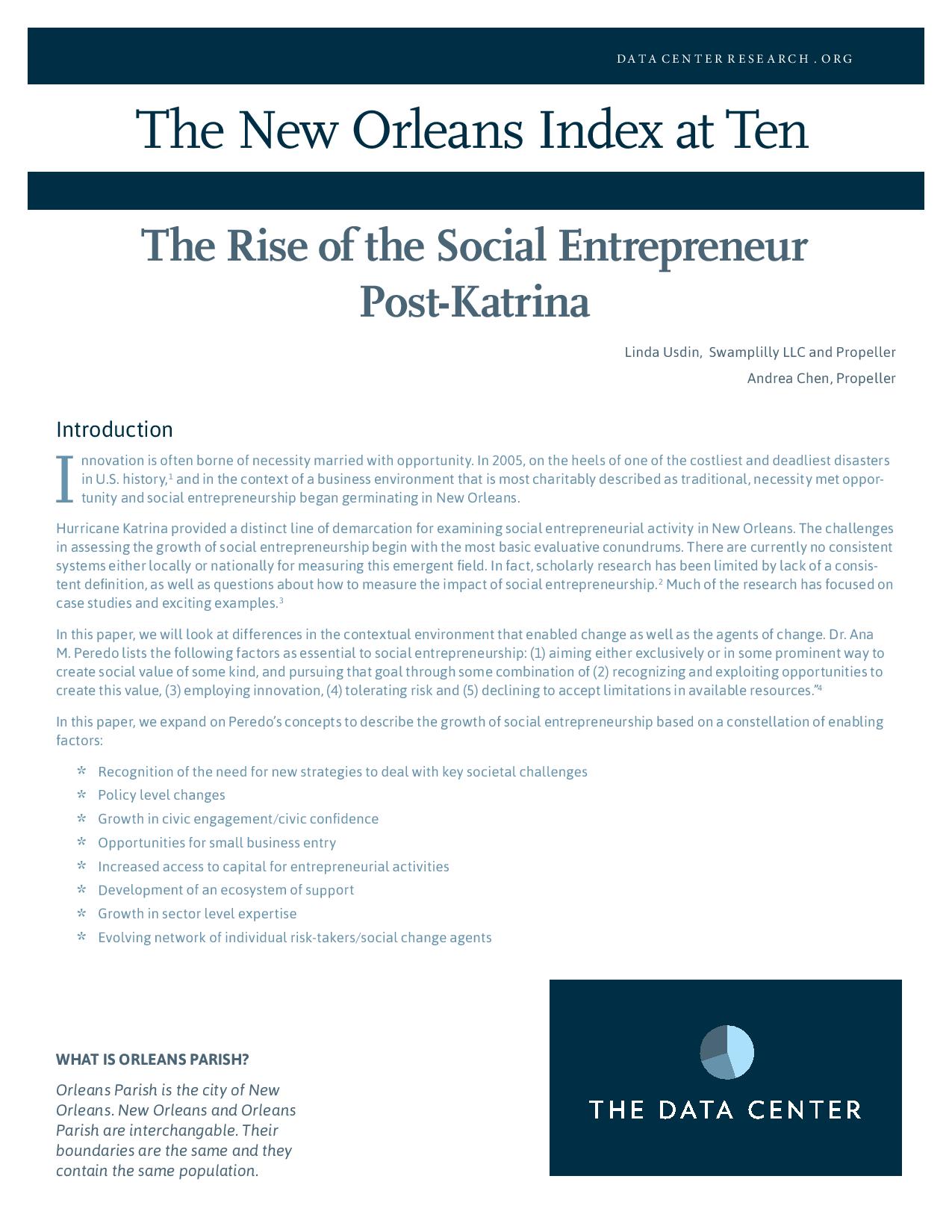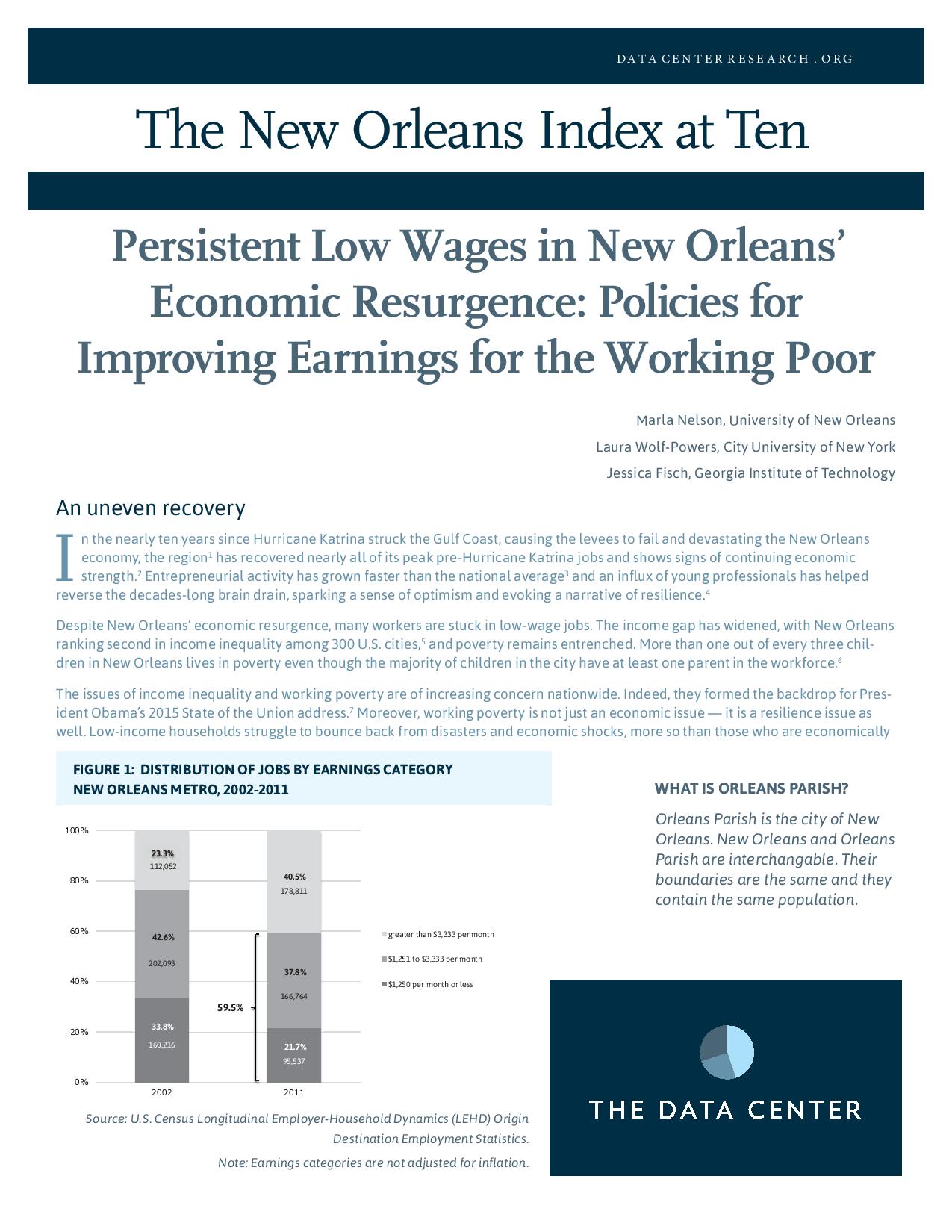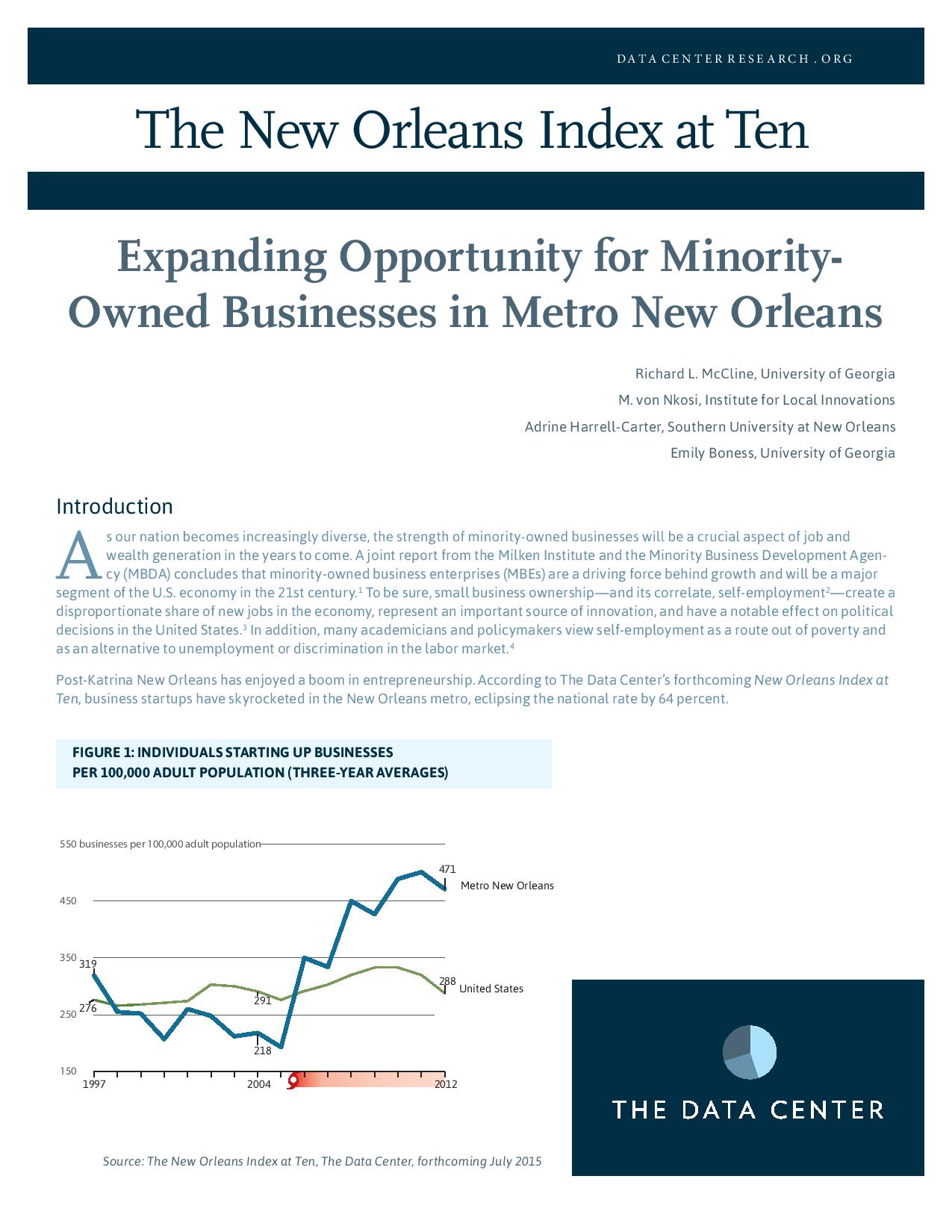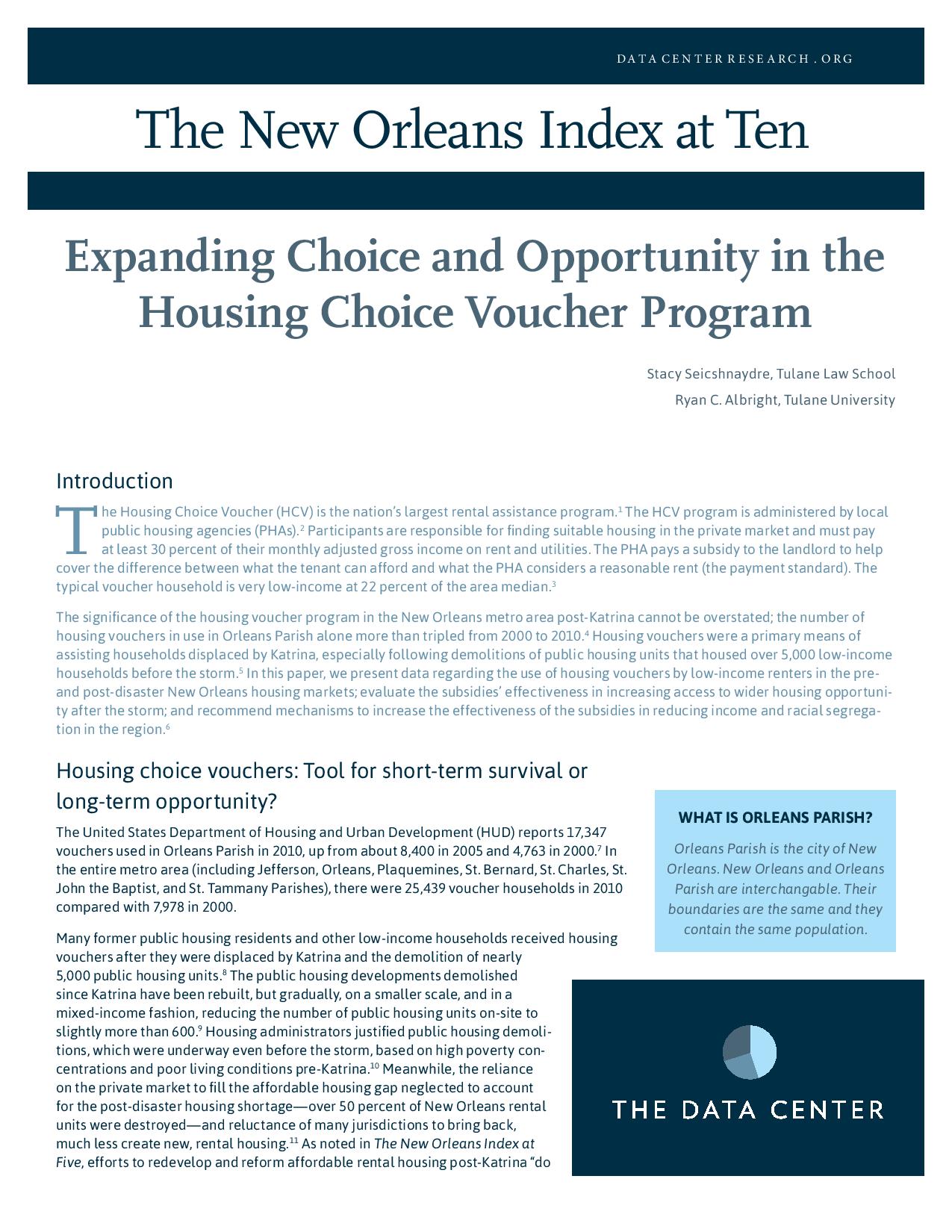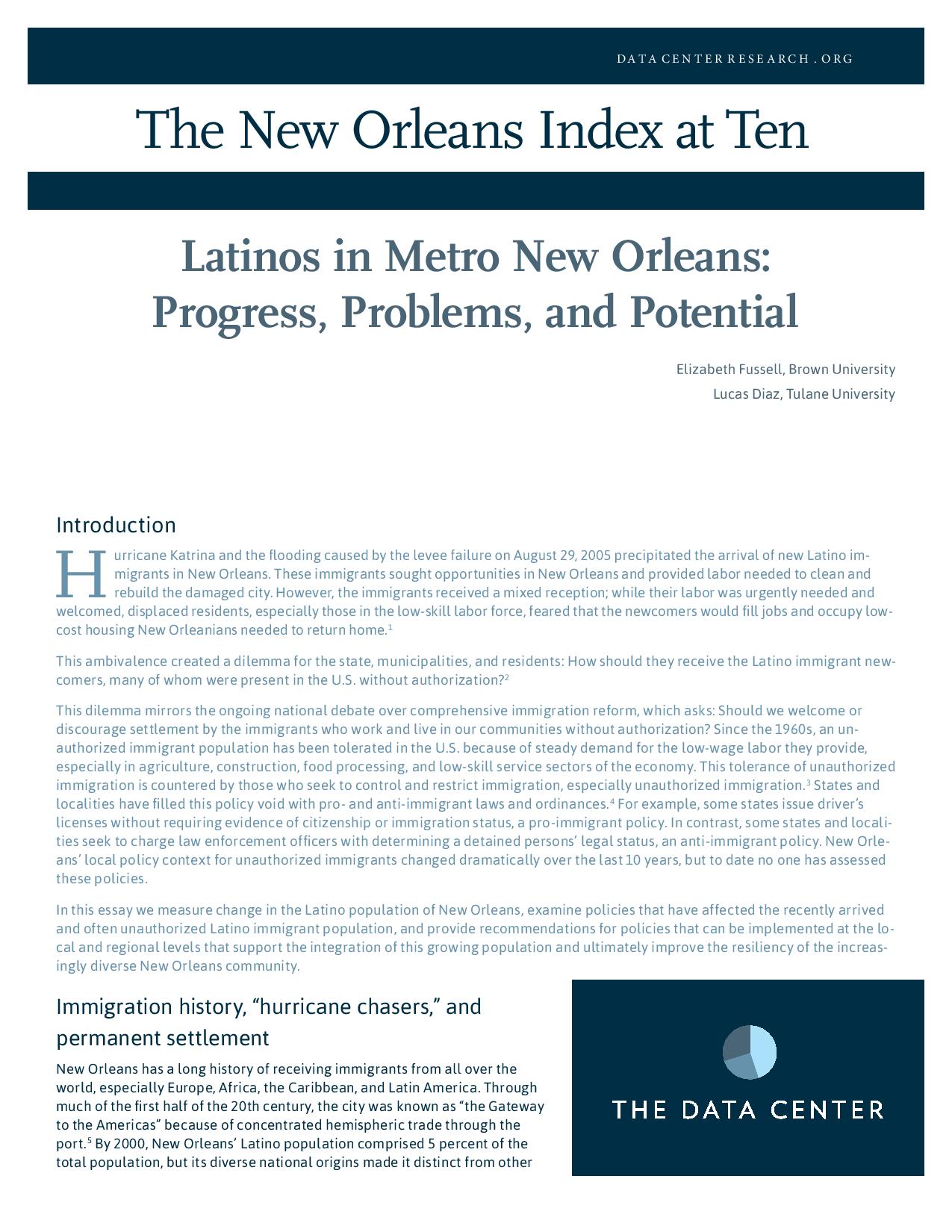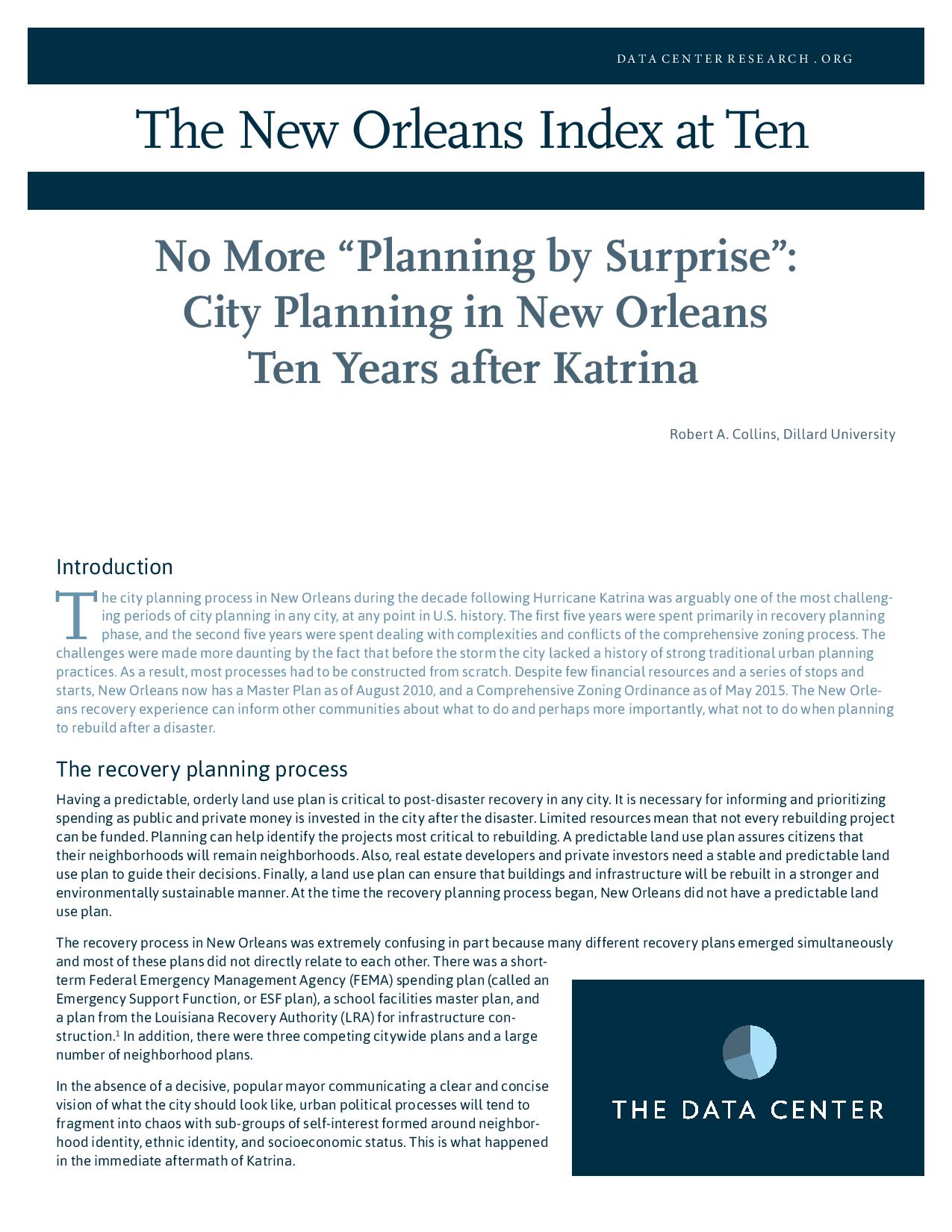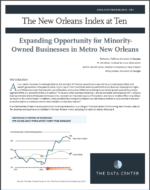Jul 23, 2015
For metro New Orleans, where 47 percent (and rising) of residents are minorities, minority-owned business enterprises (MBEs) will play a significant role in driving job and wealth generation for the foreseeable future. Post-Katrina, New Orleans has enjoyed a boom in entrepreneurship, with startup rates eclipsing the national rate by 64 percent. However, the jury is out on whether the minority population of metro New Orleans has benefited equally from the recent startup renaissance. In this paper, we provide empirical data on how MBEs perceive the post-Katrina entrepreneurial ecosystem, including impressions on inclusiveness, supports, and access. We close with recommendations on policies and procedures that improve the ecosystem's ability to support MBE development.
Learn More
